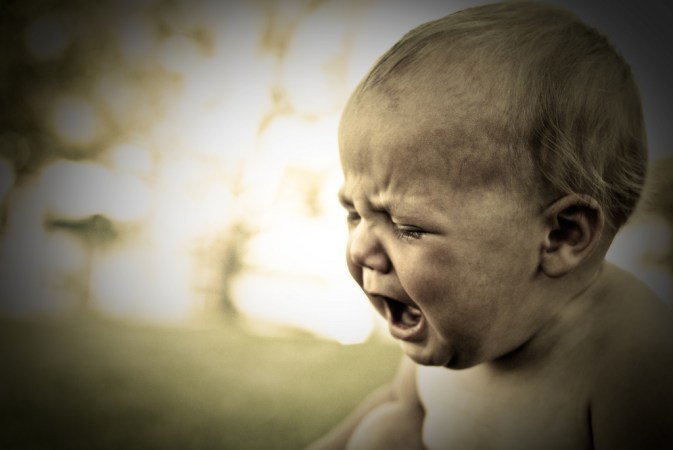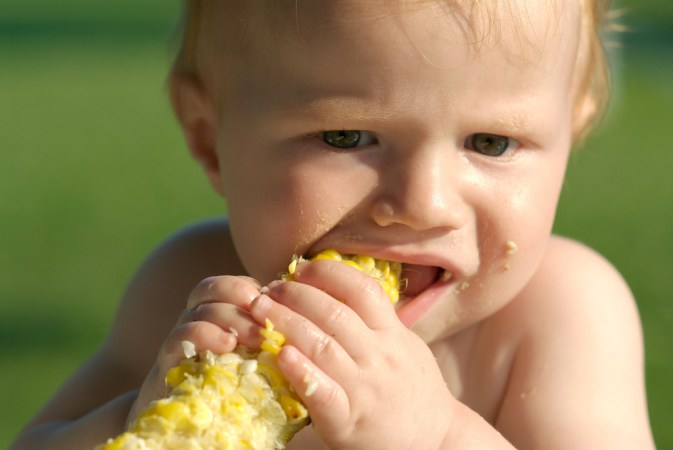

When I used to babysit my infant niece, I often panicked when she started to cry. Was she hungry? Tired? Cold? In need of a diaper change? I struggled to interpret her scrunched-up, tear-stained face. But it turns out other babies might’ve easily been able to read her temper changes.
A recent study led by Ross Flom, psychology professor at Brigham Young University, revealed that by 5 months of age infants can recognize each other’s emotional expressions.
“Newborns can’t verbalize to their mom or dad that they are hungry or tired, so the first way they communicate is through affect or emotion,” Flom says in a statement. “Thus it is not surprising that in early development, infants learn to discriminate changes in affect.”
Published in the academic journal Infancy, the study looked at 40 infants aged 3.5 to 5 months, and tested their ability to match infant vocalizations with facial expressions. The infants were seated in front of two video monitors, one displaying a happy, smiling baby and the other a sad, frowning baby. The researchers then piped in audio of a third baby. When the audio was of a happy baby, the infants looked more to the video of the baby with positive facial expressions. When the audio was of a sad, crying baby, the infants looked to the video with negative facial expressions.
“These findings add to our understanding of early infant development by reiterating the fact that babies are highly sensitive to and comprehend some level of emotion,” Flom says. “Babies learn more in their first 2 1/2 years of life than they do the rest of their lifespan, making it critical to examine how and what young infants learn and how this helps them learn other things.”
Previous research had indicated that infants were capable of perceiving emotional expressions in familiar adults by 6 months, and all other adults by 7 months. According to Flom his next goal is to discover whether babies could achieve this level of perception at a younger age if they were watching and hearing clips of themselves.







